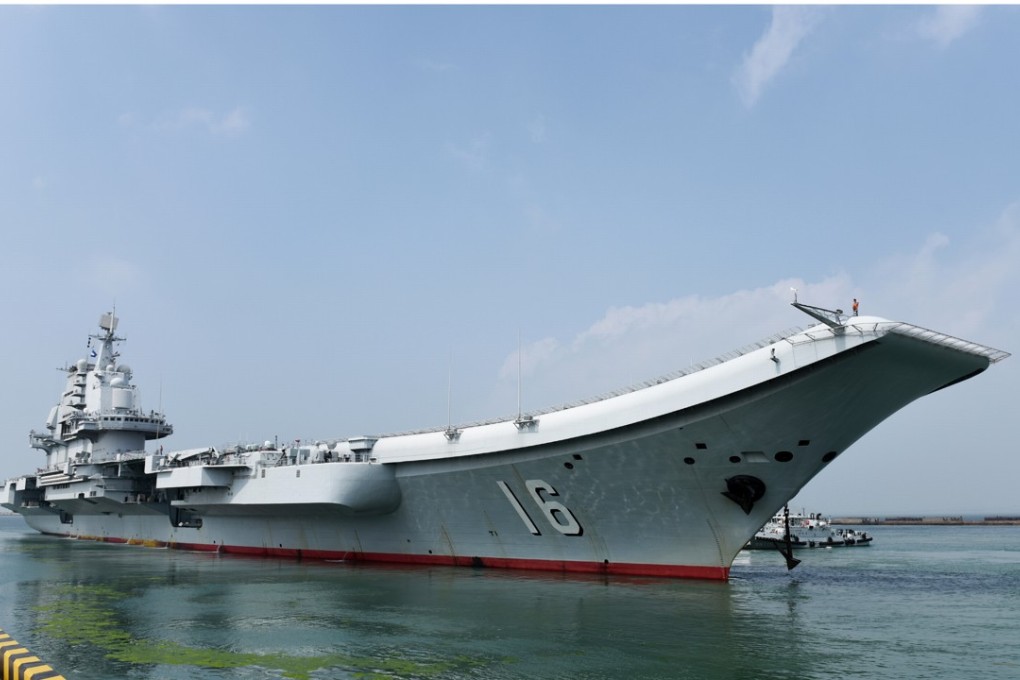All eyes watching the route China’s Liaoning aircraft carrier will take to Hong Kong
Liaoning expected to conduct drills before passing Taiwan on handover port call

China’s first aircraft carrier Liaoning will undergo two weeks of training before making a port call in Hong Kong.
Taiwan is closely watching the movement of the aircraft carrier over whether it will pass through the Taiwan Strait before stopping in Hong Kong marking the 20th anniversary of the handover.
The aircraft carrier departed Qingdao in Shandong province on Sunday, and was travelling with a flotilla that includes the destroyers Jinan and Yinchuan and frigate Yantai. It was also carrying a squadron of J-15 fighters and some helicopters, Xinhua reported.
It is expected to make a two-day port call in Hong Kong on July 7, marking the Marco Polo Bridge incident.
Hong Kong-based China water Johnny Lau Yui-siu believed the visit of Liaoning to the city on the historical day was intended to serve the purpose of national education.